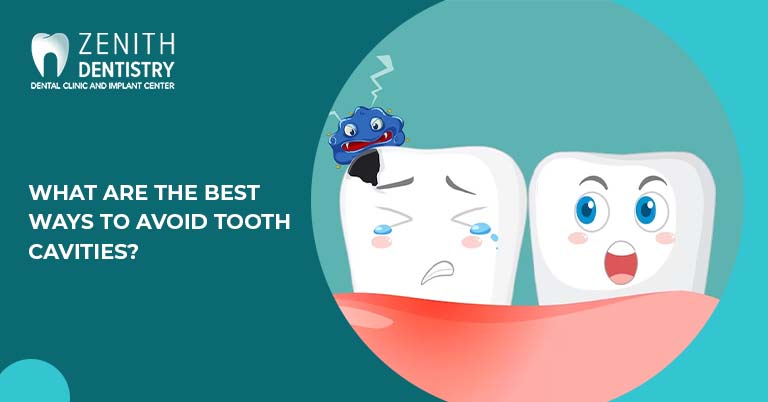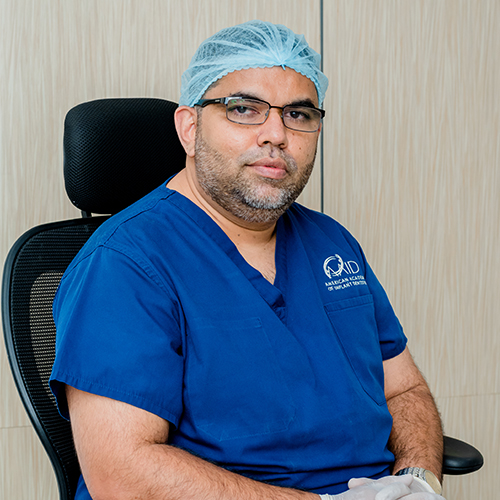
What are the best ways to avoid tooth cavities?
Cavities form on the teeth’s outermost layer of enamel and dentin. When a tooth is no longer utilized, Decay and calculus accumulate. Root canals are not a cure for tooth decay, but they can slow the progression of disease. The idea is to get rid of as much Decay and calculus as possible before it causes more damage.
Teeth come in a variety of forms and sizes. Cavities form differently in each tooth type. Understanding what makes up a Cavity is, therefore, an important element of dental treatment. Many people are unaware that they have a cavity until they suffer tooth pain.
There are various things you can take to help keep dental cavities. This blog will provide you with the knowledge you need to protect your smile and preserve good oral health against tooth decay.
What is a tooth Cavity?
A tooth cavity, also known as dental caries, is a common dental disorder characterized by the slow destruction of the hard tissues of the tooth, especially the enamel and dentin. This Decay is produced mostly by the interaction of bacteria in the mouth with sugars from the food, which results in the creation of acids that erode the protective enamel. As the enamel deteriorates and breaks down, it leaves a physical hole or cavity in the tooth, which can lead to tooth sensitivity, pain, and other dental problems if left untreated. Oral hygiene and frequent dental check-ups are essential for the prevention and early identification of tooth cavities.
What are the signs of dental Decay?
A dental cavity can cause a variety of symptoms, including:
Tooth Sensitivity
A common early indicator of a cavity is increased sensitivity to hot, cold, sweet, or acidic meals and drinks. In response to these stimuli, you may feel a sudden or transient discomfort.
Toothache
You may have continuous or throbbing tooth pain as the cavity spreads and reaches deeper layers of the tooth, especially when chewing or applying pressure to the affected tooth.
Visible Holes or Pits
Small holes, pits, or black stains on the surface of the impacted tooth may be seen in certain circumstances. These visual indicators are frequently indicative of a more advanced cavity.
Tooth Discoloration
White, brown, or black staining on the tooth can indicate enamel demineralization and cavity formation.
Bad Breath
Bacteria that cause cavities can produce foul-smelling chemicals, resulting in poor breath or an unpleasant taste in the mouth.
Pain
If the cavity has progressed to a certain point, you may suffer pain or discomfort when biting down on food or objects.
Swelling Around the Tooth
If the infection has progressed to the pulp (innermost part) of the tooth, you may see pus discharge, gum edema, or a gum boil near the affected tooth.
It’s crucial to remember that not all cavities cause symptoms, especially in the early stages. Regular Dental Check-ups are critical for discovering cavities that are not yet causing symptoms. If you suspect you have a cavity or are experiencing any of the aforementioned symptoms, you should see a dentist for an accurate diagnosis and treatment.
How can i avoid tooth cavities?
Preventing tooth decay is practicing proper oral hygiene and making lifestyle choices that lower the risk of cavities. Here are some successful ways to prevent tooth decay:
Regular Brushing
Brush your teeth with fluoride toothpaste at least twice a day, especially in the morning and before bedtime.Brush all surfaces of your teeth thoroughly for at least two minutes each time.
Flossing
Floss daily to remove food particles and plaque from between your teeth and along the gum line, where a toothbrush may not be able to reach.
Limit Sugar and Acidic Foods
Reduce your intake of sugary and acidic foods and beverages. Candies, sweet beverages, fruit juices, and acidic fruits are examples. When you do ingest them, attempt to do so in moderation and afterwards rinse your mouth with water.
Drink Water
Water aids in the removal of food particles and acids from the mouth. Drinking fluoridated water can also aid in tooth strengthening.
Chew Sugar-Free Gum
Chewing sugar-free gum, especially after meals, can boost saliva production, which aids in acid neutralization and tooth enamel strengthening.
Use Fluoride Products
Use fluoridated toothpaste and mouthwash. Fluoride promotes enamel remineralization and makes teeth more resistant to Decay.
Dental Sealants
Consider having dental sealants, which are protective coatings that are put on the chewing surfaces of molars and premolars to prevent plaque and food particles from accumulating.
Regular Dental Check-Ups
Regular check-ups and expert cleanings should be scheduled with your dentist. Dental specialists can diagnose and cure cavities in their early stages, as well as advise patients on basic oral hygiene.
Modify Your Diet
Include tooth-friendly foods like dairy, leafy greens, and crunchy veggies. These can aid in tooth strengthening and oral health.
Avoid Tobacco Products
Tobacco use and smoking can both lead to tooth decay and gum disease. Quitting or avoiding these practices will improve your overall dental health.
Alcohol Consumption
Excessive alcohol consumption can cause dry mouth, which reduces saliva production. Saliva aids in cavity prevention by neutralizing acids and washing away food particles.
Use a Soft-Bristled Toothbrush
A toothbrush with soft bristles is softer on your teeth and gums, lowering your risk of enamel abrasion and gum recession.
By following these preventive measures and maintaining a consistent oral hygiene routine, you can significantly reduce your risk of developing tooth cavities and enjoy better overall oral health.
To summarize, safeguarding your oral health against tooth decay is a critical component of maintaining both a beautiful smile and your overall health. By incorporating the tips and strategies presented in this article into your daily routine, you may dramatically reduce your chances of acquiring tooth cavities while also maintaining the brilliance and health of your smile. Always remember that prevention is the key to a cavity-free future. Therefore, prioritize dental hygiene and enjoy a lifetime of confident, cavity-free smiles.






